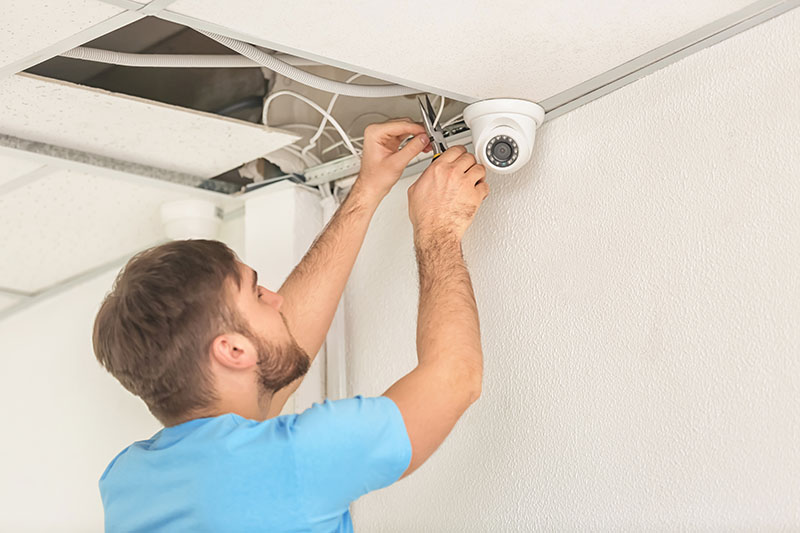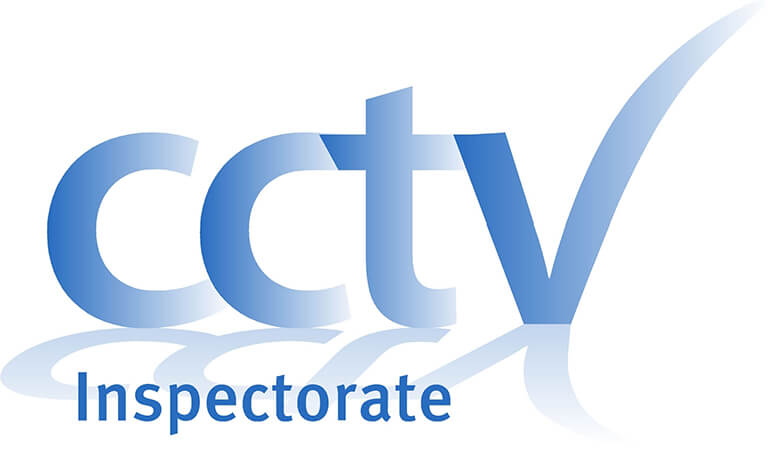How can you prove that a CCTV System meets the requirements of UK GDPR and the Data Protection Act 2018?
How can you be sure that good privacy standards are maintained for a CCTV System?
Training and certification services for CCTV installers, owners and users, making CCTV systems compliant.

CCTV and the Law
CCTV and the Law
Closed circuit television (CCTV) surveillance is an increasing feature of our daily lives. There is an ongoing debate over how effective CCTV is in reducing and preventing crime, but one thing is certain – its deployment is commonplace in a variety of areas to which members of the public have free access. We might be caught on camera while walking down the high street or visiting a bank, a railway station, an airport or a shop.
There was no statutory basis for systematic legal control of CCTV surveillance over public areas until 1 March 2000, when the Data Protection Act came into force.
An important new feature of this legislation was a power for Elizabeth France CBE, former Data Protection Commissioner and former Chair of the Security Industry Authority (SIA), to issue the first Commissioner’s CCTV Code of Practice (Section 51 (3) (b), DPA 1998) setting it out as guidance in a Statutory Interpretive Law format.
These legal guidelines deal with surveillance in areas to which the public have largely free and unrestricted access because, as the House of Lords Committee highlighted at that time, there was specific concern about a lack of regulation and a lack of central guidance. Although the Data Protection Act 1998 covers other uses of CCTV, this first Code of Practice addressed the area of widest concern – the design, installation, commissioning and maintenance of CCTV Systems throughout the UK.
Many of its provisions were relevant to other uses of CCTV and Video Surveillance have been referred to over the years as other guidance has been developed in connection with new technology. There were some existing standards developed by representatives of CCTV System operators and, more significantly, the British Standards Institute. While such standards are helpful, they are not legally enforceable.
The changes in data protection legislation from March 2000 meant that for the first time there were legally enforceable standards that applied to the collection and processing of images relating to individuals.
The Current Video Surveillance and CCTV Guidelines have the dual purpose of assisting CCTV owners, operators and installers as well as data controllers, managers and processors to understand their legal obligations, while also reassuring the public about the necessary safeguards.
TRAINING COURSES
The Problem : Proof of Compliance
It has been widely recognised that CCTV Owners & Installers have difficulty in proving compliance with the legal requirements of the UK GDPR + DPA 2018. Similarly, they are not fully prepared for the evidential requirements of the Digital Case System (DCS) used by the Courts as part of the digital transformation of the Criminal Justice System.
The Solution : Certificated Training with CCTV Licensing Services Limited
CCTV Licensing Services Limited is licensed by the CCTV Data Compliance Inspectorate to deliver unique one-day Certificated Training Courses for CCTV Owners and for CCTV Installation Engineers covering important aspects of the Information Commissioner’s Current Video Surveillance and CCTV Guidelines and the Digital Case System requirements, by the introduction of a unique Digital Compliance Assessment Form (DCAF) as evidential information needed by the Courts.
Successful completion of the Course by CCTV Installation Engineers will achieve Certificated Licensed Assessor (CLA) status to correctly complete the DCAF for older analogue CCTV systems, refurbished hybrid CCTV systems or new digital CCTV systems on behalf of the owners/data controllers, as evidential proof of the effective monitoring of CCTV Data Compliance.
Each completed DCAF will then provide the necessary vital evidence required by the Courts with regard to Data Compliance.
The completed DCAF will be securely stored in digital format and made available to the Courts and other public bodies on request.
Training courses for CCTV installation Engineers or for CCTV Owners and Users are available all year round nationally.
